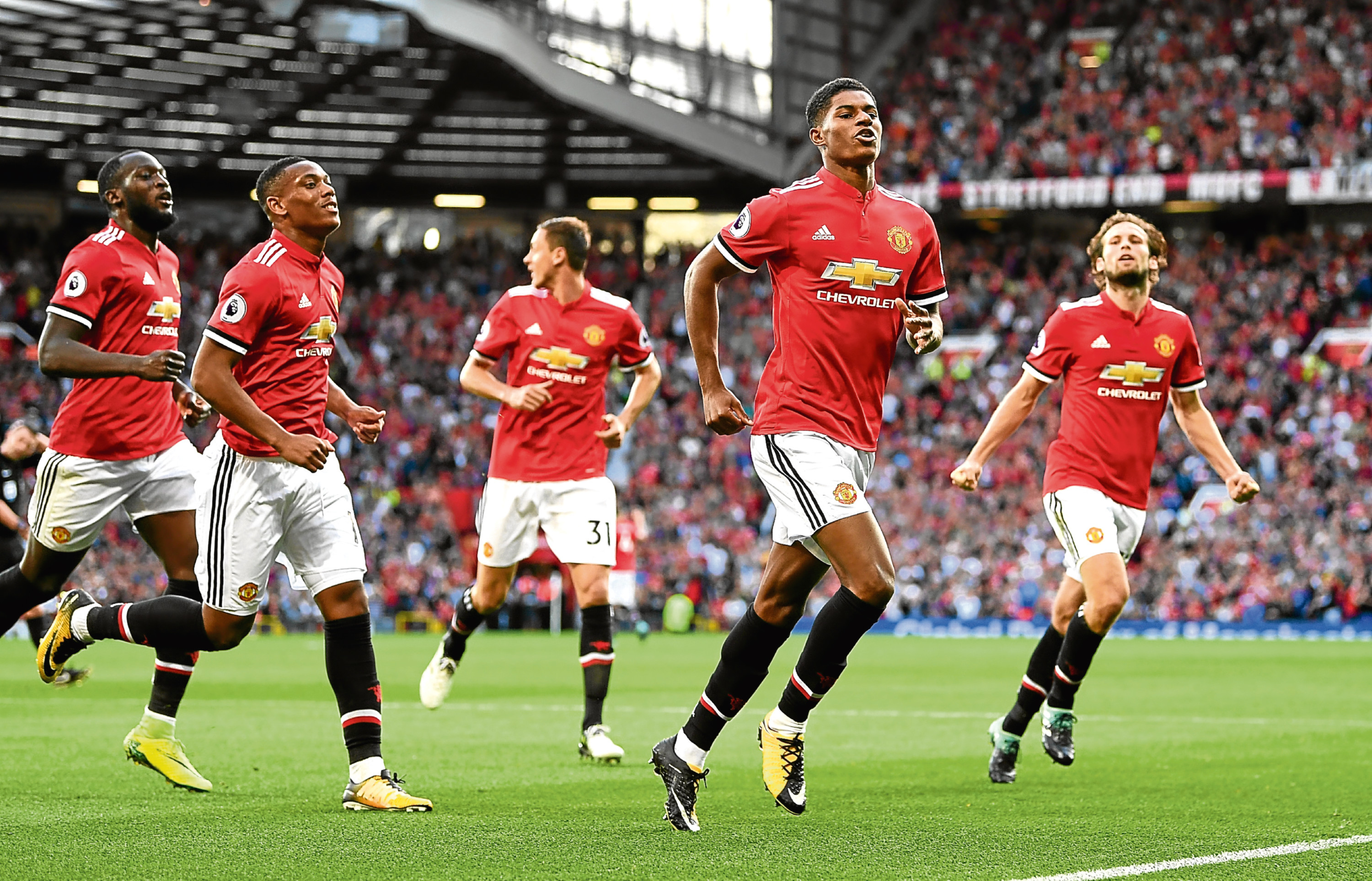
MARCUS RASHFORD’S almost childlike approach to high-tension Premier League football is a breath of fresh air to his manager Jose Mourinho.
The focus at Old Trafford this afternoon will be on the two headline acts facing their former clubs.
Ex-Everton striker Romelu Lukaku will lead Manchester United’s attack while United record scorer Wayne Rooney lines up for the Toffees.
Both fit the identikit of mega-rich, big-name players with high-profile agents and Hollywood-style entourages.
However, Mourinho still believes there’s a place for youthful innocence in the game, epitomised by Rashford.
“I just think he loves football,” says Mourinho. “He loves to train, he loves to play.
“When you also love full stadiums and you love responsibility, then you love big matches.
“It looks to me that everything around him is very normal. He doesn’t have an entourage of complex dimensions like nowadays you see with some players.
“When I look at him and Jesse Lingard I still think they are 15!
“The way they live, the way they train, the way everything is simple for them, I see them as kids.
“And football needs kids, simple kids, who just enjoy what they’re doing.”
Lukaku’s six goals in his first six matches suggest that even the £75m United paid Everton may prove to be a bargain.
However, Mourinho dismisses that notion, and also plays down his own part in persuading the player to choose United over Chelsea, who had also chased the Belgian.
“He’s not a bargain because we paid what Everton asked,” he says.
“The selling club decides the amount and the buying club pays or doesn’t pay.
“I don’t think it was my influence. My club paid the money Everton wanted, we paid the player the wages his agent asked for and we paid the agents the commission they asked for. That’s how it worked.”
Everton chose to allow their top scorer to leave, but could have easily dug in their heels, as Liverpool did with Philippe Coutinho and Southampton with Virgil van Dijk.
It’s that power to resist financial overtures of other clubs that has transformed the landscape of the Premier League in Mourinho’s view.
“It’s more difficult to win it now because the economic power belongs to everyone,” he says.
“That power is not just to buy but also to keep and say: ‘No, we don’t sell’. It means that every club is potentially strong.
“It was always difficult to win this League because in this country more teams fight for the title.
“But now there are also more clubs outside this group of six or seven that have conditions to give you hard matches and take points from you.
“It is also clear that the Premier League has a much more defensive profile than it used to, and that also makes it more difficult.”

Enjoy the convenience of having The Sunday Post delivered as a digital ePaper straight to your smartphone, tablet or computer.
Subscribe for only £5.49 a month and enjoy all the benefits of the printed paper as a digital replica.
Subscribe